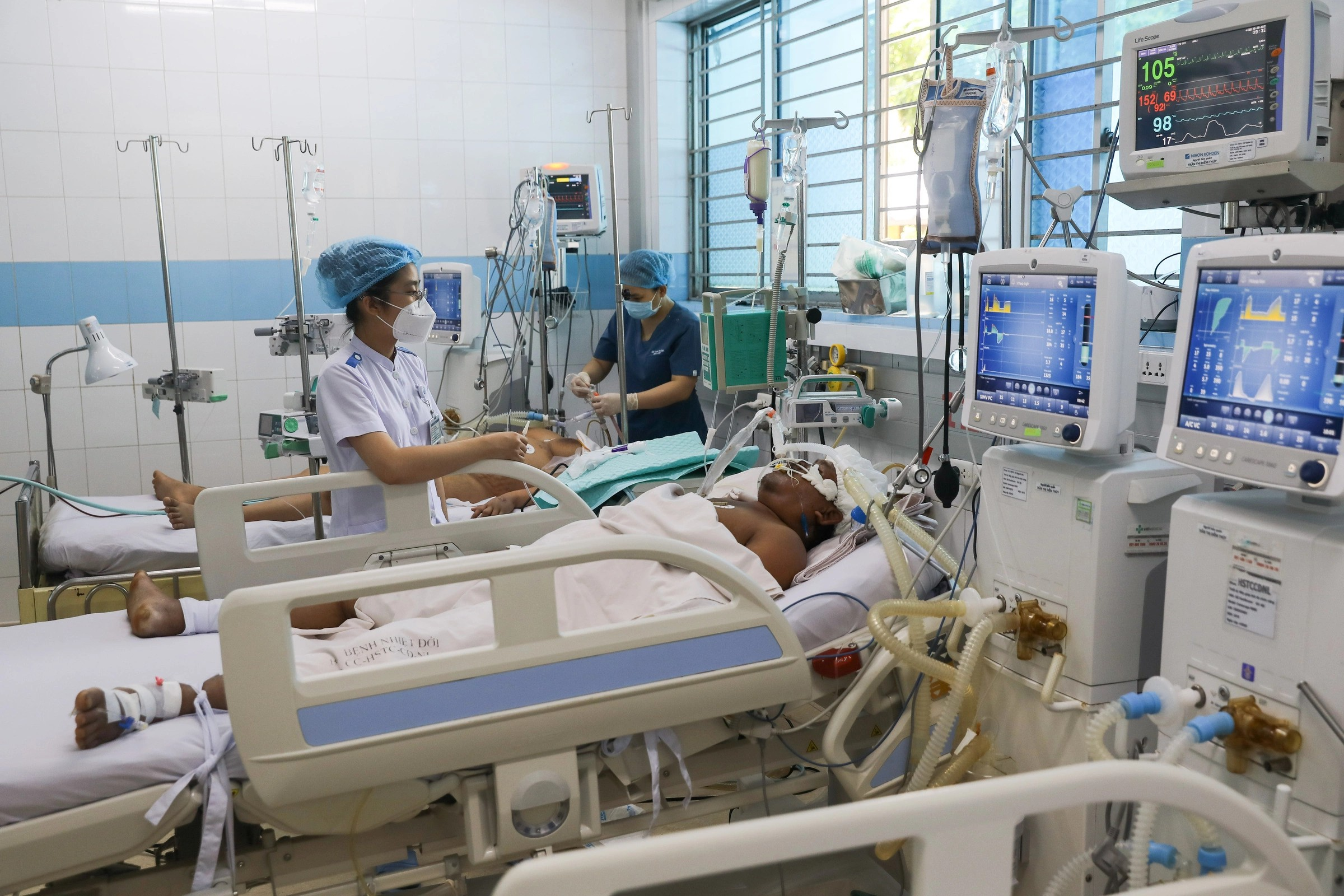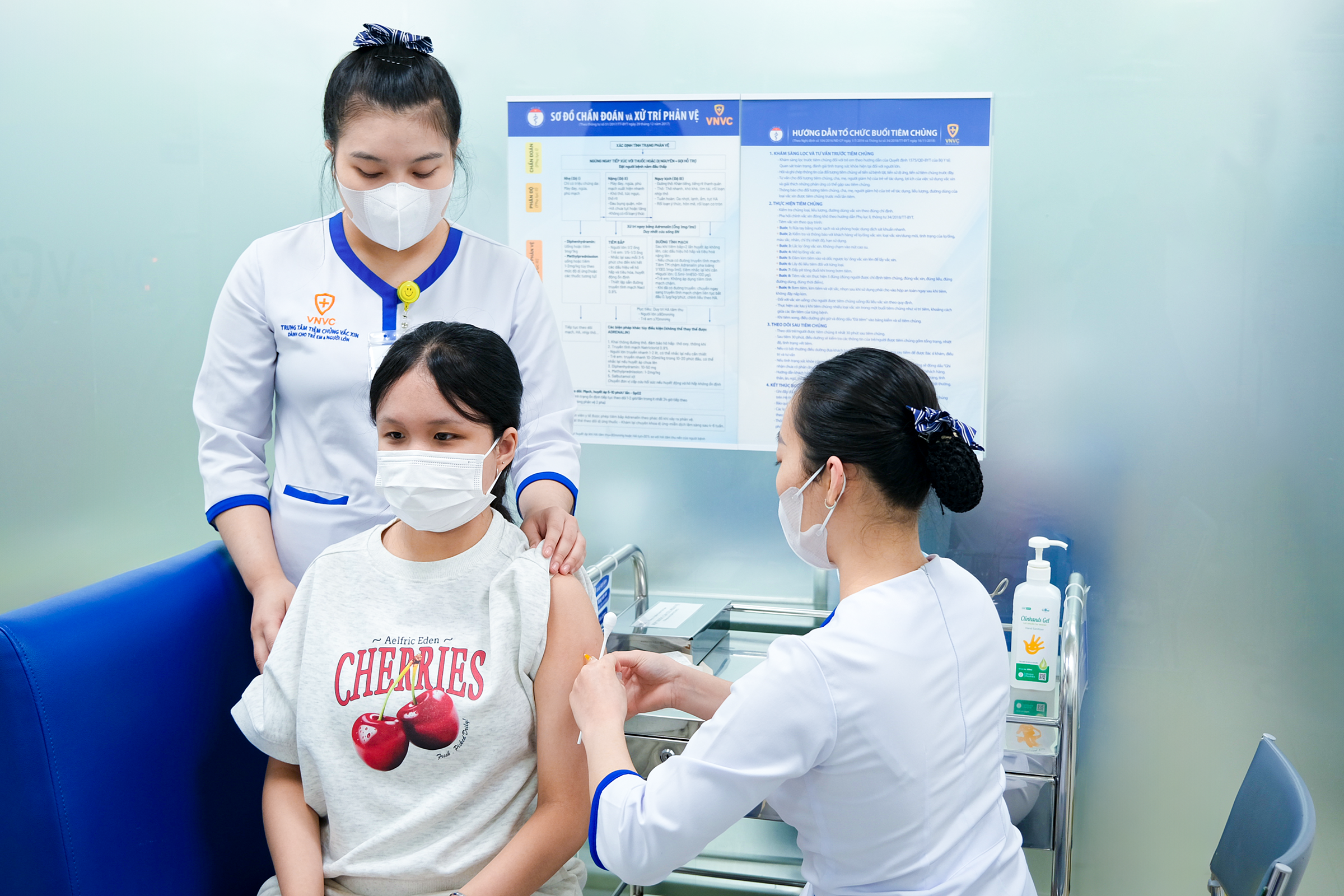Dr. Nguyen Tien Dao, Medical Manager of VNVC Vaccination System, highlighted this concern amid a nationwide surge in dengue fever deaths. Many hospitalized patients present with shock, repeated episodes of shock, liver and kidney damage, blood clotting disorders, severe bleeding, and infections.
Liver damage is a common complication of dengue fever, affecting 60-90% of cases. Symptoms include an enlarged liver, jaundice, and elevated liver enzymes. In 4-15% of severe cases, liver enzymes can increase tenfold, raising the risk of acute liver failure, according to a 2021 study on "Dengue Fever and the Liver" by a team of experts from the Faculty of Tropical Medicine, Mahidol University, Thailand.
 |
Dengue fever patients receiving treatment at the Hospital for Tropical Diseases in TP HCM. Photo: Quynh Tran |
Dengue fever patients receiving treatment at the Hospital for Tropical Diseases in TP HCM. Photo: Quynh Tran
The dual impact of the dengue virus and the body's inflammatory response causes liver damage. The virus directly invades and destroys liver cells, causing internal damage. The body reacts by activating a self-destruction mechanism in infected cells to protect itself. When too many cells are destroyed simultaneously, the liver can no longer perform its vital functions.
Simultaneously, the virus triggers an excessive inflammatory response, releasing inflammatory mediators like cytokines. This intense reaction can damage healthy liver cells, causing swelling, congestion, and hindering blood supply to the liver.
The reduced blood flow to the liver during dengue shock further contributes to acute liver failure. In this state, the liver almost completely loses its ability to detoxify, produce clotting factors, and regulate metabolism. The mortality rate can reach 50% without prompt treatment.
"The liver shows clear signs of damage from the onset of shock, often worsening after 12-24 hours," Dr. Dao explained, adding that cases progressing to acute liver failure typically require intensive care with ventilators, plasma transfusions, and dialysis. Without improved liver function, patients may need a liver transplant to survive.
 |
VNVC Vaccination System has seen a rise in people proactively getting the dengue fever vaccine during peak season. Photo: Binh An |
VNVC Vaccination System has seen a rise in people proactively getting the dengue fever vaccine during peak season. Photo: Binh An
Early detection of liver damage in dengue fever is crucial to prevent severe complications. Patients should seek immediate medical attention if they experience warning signs, including: pain or discomfort in the right upper quadrant (liver area), persistent nausea and jaundice, restlessness, lethargy, excessive vomiting, decreased urination, severe headaches, nosebleeds, or bleeding gums. Hospitalization is recommended for those living alone, residing far from medical facilities, lacking family support for monitoring, those who are overweight or obese, pregnant women, children under one year old, or adults over 60.
Dr. Dao advises the public to take preventive measures against dengue fever. Families should eliminate mosquitoes and larvae by covering water containers, collecting waste, and overturning unused items to prevent water accumulation. Mosquito nets and long-sleeved clothing should be used, even during the day. Surrounding areas should be kept clean, and bushes cleared to prevent mosquito breeding.
Dengue fever is preventable with a vaccine. The vaccine reduces the risk of infection by over 80% and the risk of hospitalization by over 90%. It is recommended for children aged 4 and older and adults. The vaccination schedule involves two doses, three months apart. Women are advised to get vaccinated before pregnancy, ideally three months or at least one month prior.
Binh Nguyen












